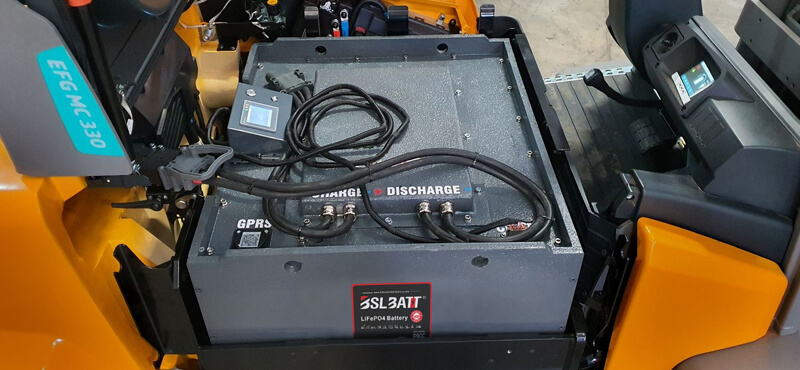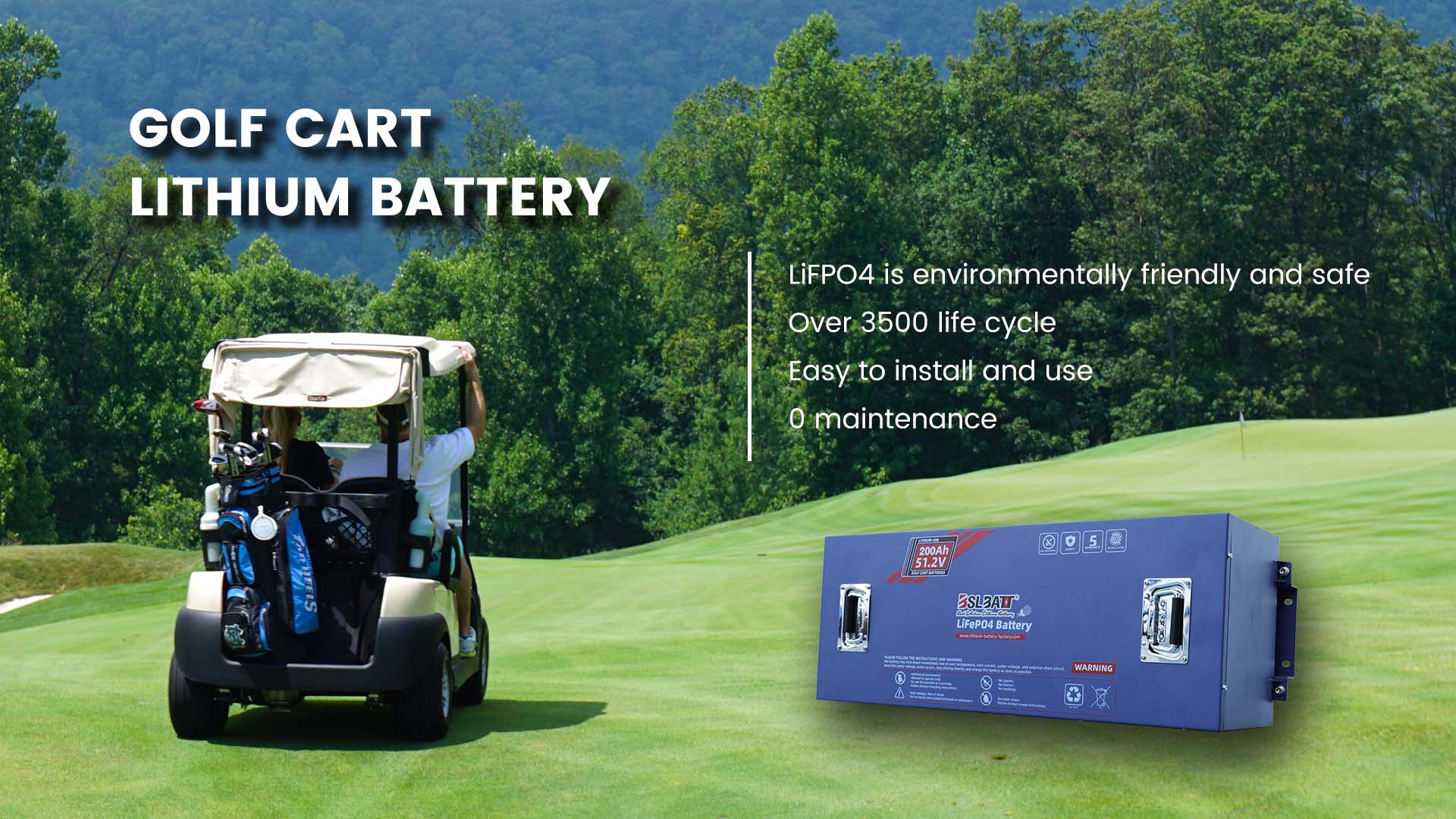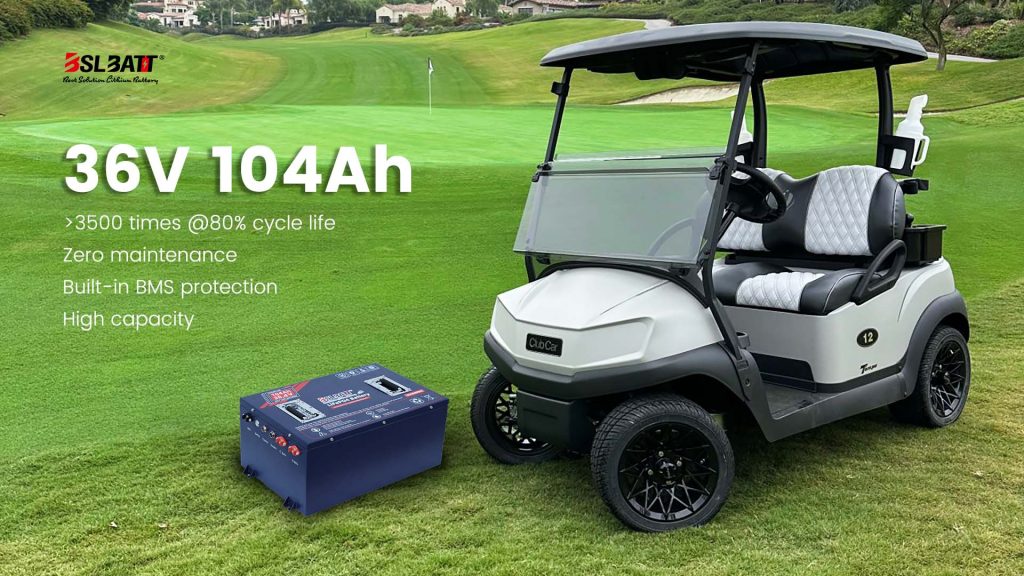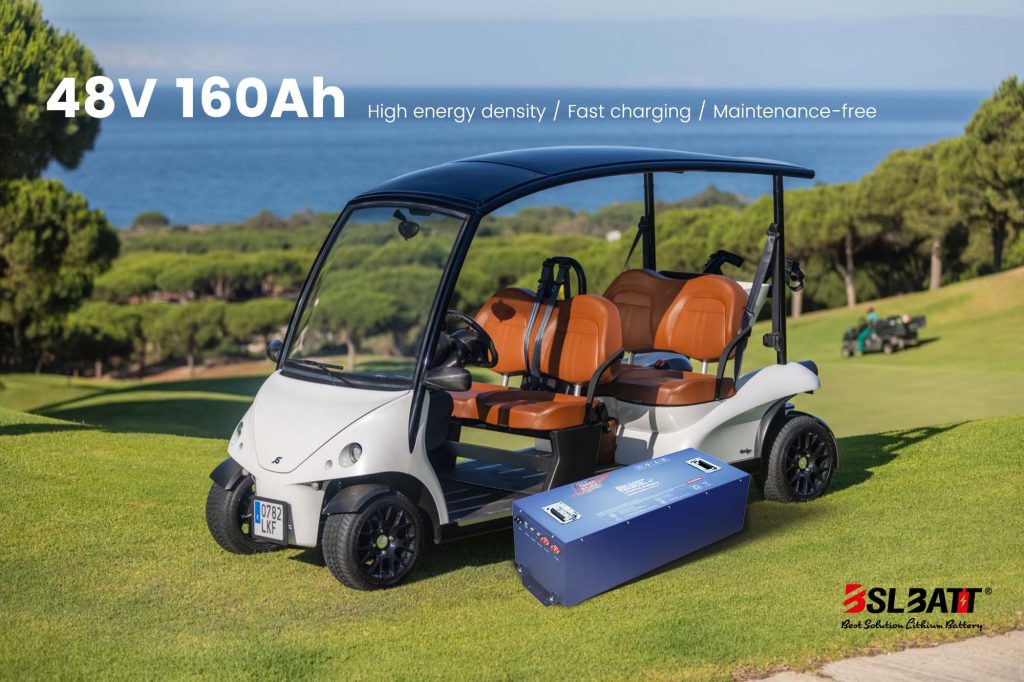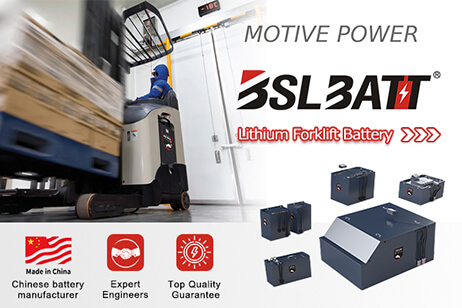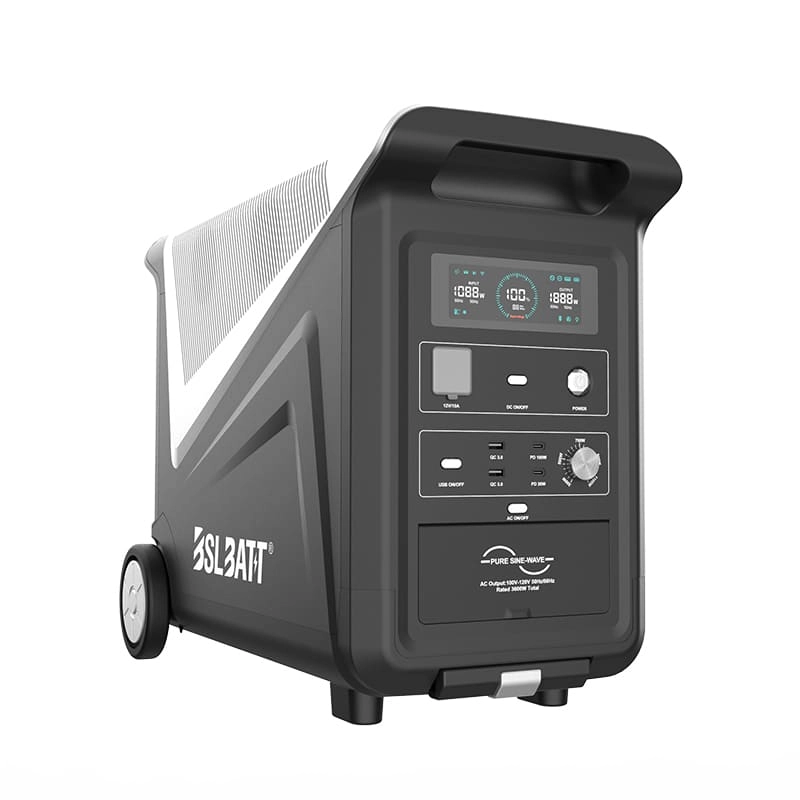Industry Application
Product Type
5 Key Factors To Consider When Selecting A Golf Cart Lithium Battery Brand

If one desires a battery with an extended lifespan, enhanced power output, reduced weight, and expedited charging capabilities, transitioning to lithium batteries is highly recommended. Nevertheless, it is imperative to acknowledge that not all lithium battery manufacturers possess equal attributes, particularly in terms of battery safety, the company’s historical performance, and customer assistance. Hence, how can one guarantee the selection of the appropriate brand to maximize the benefits derived from their energy storage investment?
What to Look For When Choosing the Best LiFePO4 Battery?
Several factors are crucial in determining the performance of a LiFePO4 battery for a specific requirement. These technical parameters hold greater significance than any superficial marketing jargon employed by certain manufacturers. Let us examine these factors individually.
Battery Capacity
The capacity of the battery is denoted by the value expressed in ‘Ampere hours’ as indicated on the label. This capacity provides valuable information regarding the battery’s ability to handle load and its duration of operation under the combined load of various applications.
Battery Voltage
It is important to note that the voltage of a battery is not universally compatible. For instance, a 24V system cannot support a 12V battery. Therefore, it is crucial to consider the voltage requirements of your system in order to narrow down the available options for lithium batteries.
Cycle Life
Cycle life refers to the number of charge and discharge cycles that a battery can sustain while maintaining optimal health. A longer cycle life indicates a battery that will last for a significant period of time, thus providing a better return on your investment.
Power Output
It is essential to differentiate between battery capacity and power output. Simply put, a 100Ah battery does not necessarily output 100Ah of power on a single charge. The power output is dependent on the depth of discharge of the battery. For example, a 100Ah LiFePo4 battery with a 90% depth of discharge can output 90Ah of power.
Charging Efficiency
Charging efficiency is the ratio of the energy stored in the battery to the energy supplied to the battery during the charging process. It serves as an indicator of the energy losses that occur during charging. A higher charging efficiency implies that a battery will charge more quickly and result in lower energy costs.
Weight and Size
The weight and dimensions of the battery should be compatible with the available space in your application. Certain use cases, such as marine applications, impose restrictions on battery size and weight. Conversely, in cases like golf cart, there is more flexibility in the weight and size of the battery that can be utilized.
Safety Features
The inclusion of safety features in the battery is crucial for maintaining battery health. Additionally, these safety features safeguard individuals in the vicinity from potential electrical or fire hazards. A high-quality LifePO4 battery should also incorporate features such as short circuit protection and overcharging protection.
Warranty and Support
The warranty provided for the battery serves as an indicator of its health and expected lifespan. A battery with a 6-month warranty cannot be expected to perform optimally for more than a couple of years. Conversely, certain batteries offer a minimum warranty period of over 5 years.
Price
The price of the battery can significantly influence purchasing decisions for most users. However, it is advisable to consider the cost-effectiveness of the battery rather than solely focusing on its price.
Brand Reputation
Acquiring a battery from a reputable brand ensures a superior product and reliable after-sales service. Although inferior batteries with no brand reputation may be cheaper, there is no recourse available if they develop defects.
User Satisfaction
Batteries listed on e-commerce platforms are accompanied by user reviews. These reviews can be consulted to gain insights into customers’ experiences with both the batteries and the brand’s service.
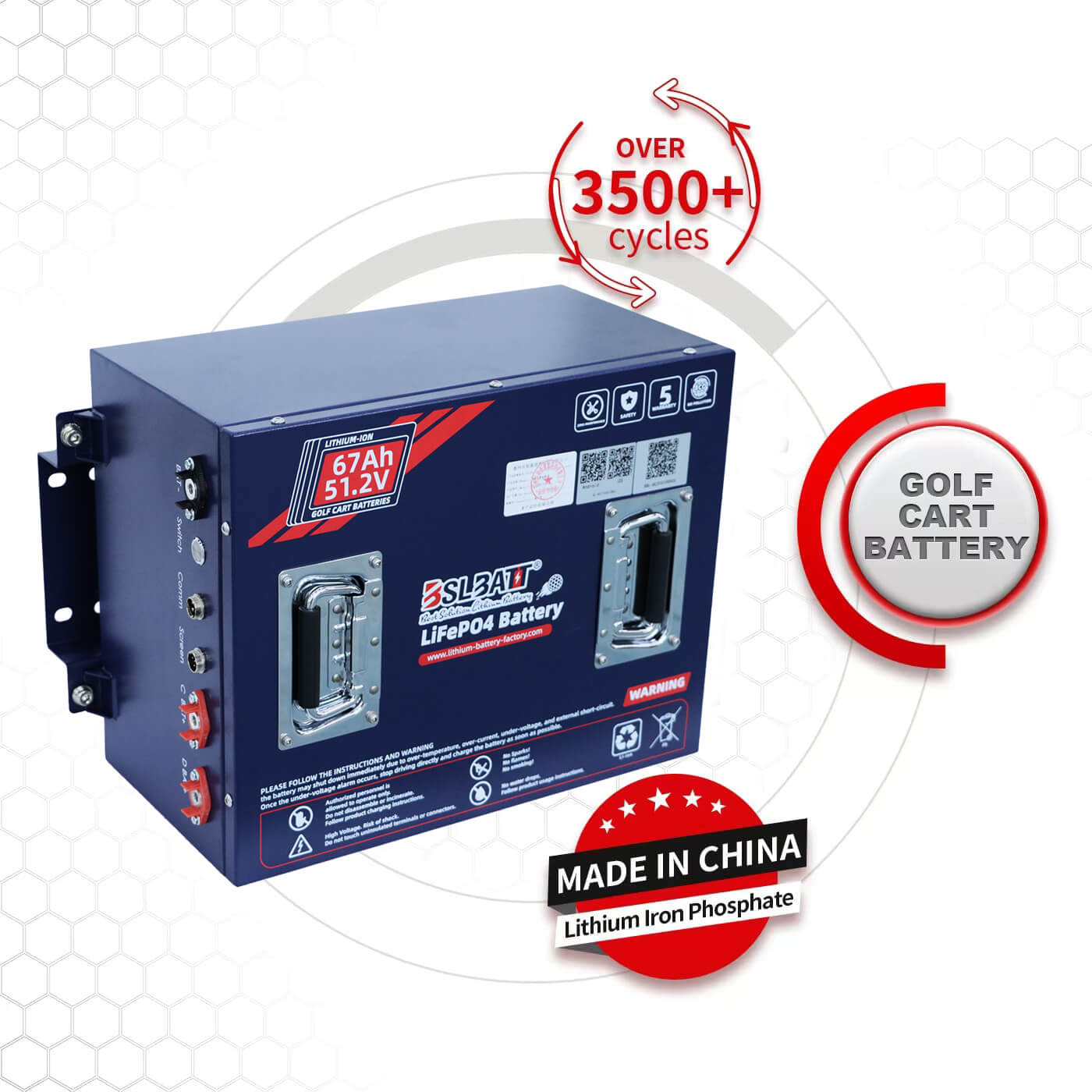
What to pay attention to when choosing a golf cart battery brand
1.Golf Cart Lithium Battery’s Chemical Makeup
When selecting a Golf Cart Lithium Battery brand, it is crucial to consider the battery’s chemical makeup. The composition of a Golf Cart Lithium Battery can vary between different brands, and understanding the chemical components is essential for assessing its performance, safety, and environmental impact. Factors such as the type of lithium used (e.g., lithium-ion or lithium-polymer), electrode materials, and electrolyte composition can significantly influence the battery’s overall quality, energy density, and lifespan.
2.Company Ethics
Another key factor to consider when choosing a Golf Cart Lithium Battery brand is the company’s ethics. It is important to support brands that prioritize ethical business practices, sustainable manufacturing, and responsible sourcing of raw materials. Research the brand’s commitment to social responsibility, labor practices, environmental sustainability, and adherence to international standards. Brands that align with your values and demonstrate a commitment to ethical conduct are more likely to prioritize product quality and customer satisfaction.
3.UN38.3 Certification
UN38.3 certification is a crucial aspect to consider when selecting a Golf Cart Lithium Battery brand. This certification ensures that the battery has undergone rigorous testing to meet safety standards for transportation. It verifies that the battery can withstand various conditions, including temperature extremes, vibration, shock, and impact. Choosing a brand that holds UN38.3 certification provides assurance of safe transportation and usage of the Golf Cart Lithium Battery.
4.Variety in Product Offerings
The variety in product offerings is another important factor to consider when selecting a Golf Cart Lithium Battery brand. A brand that offers a diverse range of lithium batteries with different capacities, sizes, and features allows you to find the most suitable battery for your specific needs. Whether you need batteries for small electronic devices, electric vehicles, or renewable energy storage systems, a brand with a wide product range ensures you have access to the right battery for your application.
5.Customer Experience
Last but not least, customer experience plays a significant role in selecting a Golf Cart Lithium Battery brand. Consider factors such as warranty policies, customer support, and overall reputation in the market. Look for brands that have positive reviews and a track record of providing excellent customer service. A brand that values its customers and provides reliable support ensures a smooth experience and assistance in case of any issues or inquiries.

Final Thought
when selecting a Golf Cart Lithium Battery brand, it is essential to consider the battery’s chemical makeup, the company’s ethics, UN38.3 certification, the variety in product offerings, and customer experience. Evaluating these key factors will help you make an informed decision and choose a best lithium golf cart battery brand that meets your requirements for safety, performance, reliability, and overall satisfaction. BSLBATT is a professional manufacturer of lithium iron phosphate golf cart batteries, providing high-quality, reliable and safe lithium batteries manufactured to the highest industry standards. Our batteries can power EZ Go, Club Car, Yamaha and other famous golf cart brands. In addition, BSLBATT offers a range of customization lithium battery for golf carts options, allowing customers to customize battery solutions to their specific needs.If you need help, please contact BSLBATT [email protected]
A Guide to Choosing the Best 48V Lithium Golf Cart Battery
Would it be worth investing in a 48V ...
10 Exciting Ways To Use Your 12V Lithium Batteries
Back in 2016 when BSLBATT first began designing what would become the first drop-in replacemen...
BSLBATT Battery Company Receives Bulk Orders from North American Customers
BSLBATT®, a China Forklift battery manufacturer specializing in the material handling indust...
Fun Find Friday: BSLBATT Battery is coming to another great LogiMAT 2022
MEET US! VETTER’S EXHIBITION YEAR 2022! LogiMAT in Stuttgart: SMART – SUSTAINABLE – SAF...
Looking for new Distributors and Dealers for BSL Lithium Batteries
BSLBATT battery is a fast-paced, high-growth (200% YoY ) hi-tech company that is leading the a...
BSLBATT to Participate at MODEX 2022 on March 28-31 in Atlanta, GA
BSLBATT is one of the largest developers, manufacturers, and integrators of lithium-ion batter...
What makes the BSLBATT the Superior Lithium Battery for your Motive Power needs?
Electric forklift and Floor Cleaning Machines owners who seek the ultimate performance will fi...








